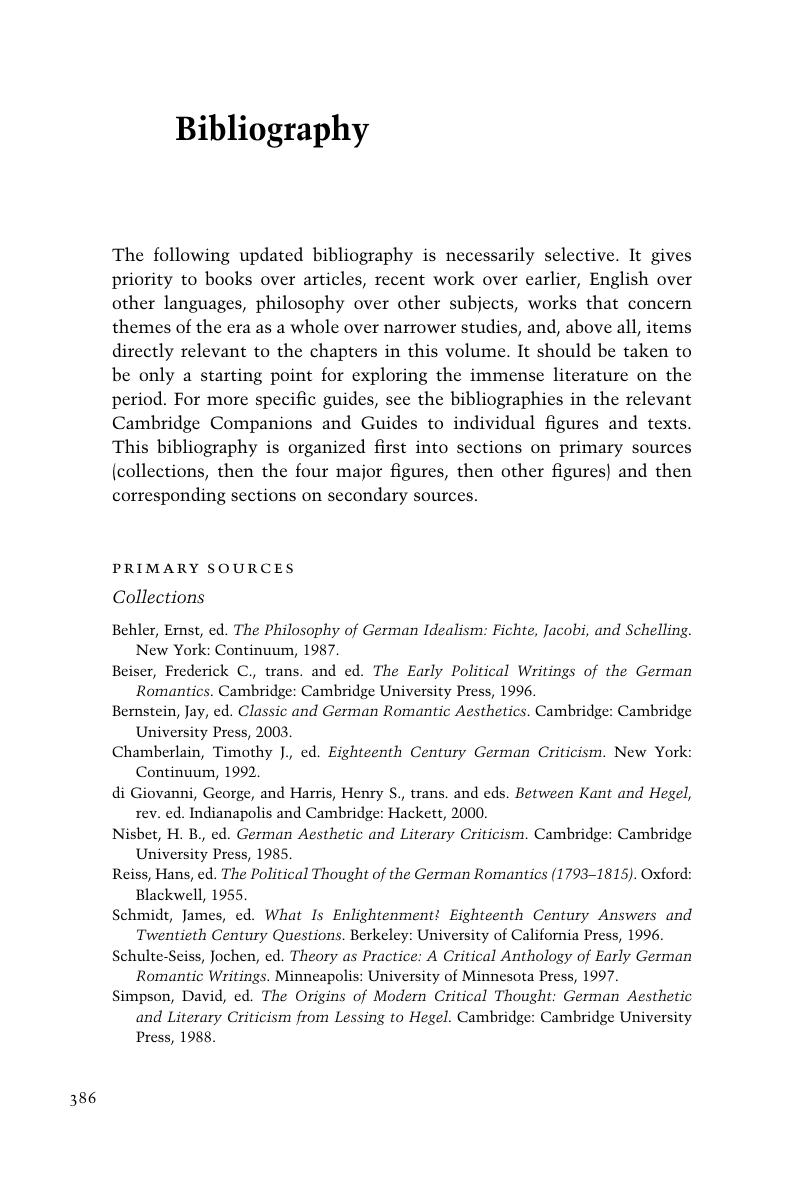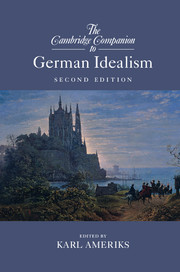Book contents
- The Cambridge Companion to German Idealism
- Other Volumes in the Series of Cambridge Companions
- The Cambridge Companion to German Idealism
- Copyright page
- Contents
- Contributors
- Chronology of German Idealism
- Map of Jena
- Introduction
- 1 The Enlightenment and Idealism
- 2 Absolute Idealism and the Rejection of Kantian Dualism
- 3 Kant’s Practical Philosophy
- 4 Aesthetic Reflection and Human Nature
- 5 The Aesthetic Holism of Hamann, Herder, and Schiller
- 6 All or Nothing
- 7 The Early Philosophy of Fichte and Schelling
- 8 Philosophy and the Chemical Revolution after Kant
- 9 Hölderlin and Novalis
- 10 Hegel’s Phenomenology and Logic
- 11 Hegel’s Practical Philosophy
- 12 Organism and System in German Idealism
- 13 German Realism
- 14 Politics and the New Mythology
- 15 German Idealism and the Arts
- 16 The Legacy of Idealism in the Philosophy of Feuerbach, Marx, and Kierkegaard
- Bibliography
- Index
- Series page
- References
Bibliography
Published online by Cambridge University Press: 30 August 2017
- The Cambridge Companion to German Idealism
- Other Volumes in the Series of Cambridge Companions
- The Cambridge Companion to German Idealism
- Copyright page
- Contents
- Contributors
- Chronology of German Idealism
- Map of Jena
- Introduction
- 1 The Enlightenment and Idealism
- 2 Absolute Idealism and the Rejection of Kantian Dualism
- 3 Kant’s Practical Philosophy
- 4 Aesthetic Reflection and Human Nature
- 5 The Aesthetic Holism of Hamann, Herder, and Schiller
- 6 All or Nothing
- 7 The Early Philosophy of Fichte and Schelling
- 8 Philosophy and the Chemical Revolution after Kant
- 9 Hölderlin and Novalis
- 10 Hegel’s Phenomenology and Logic
- 11 Hegel’s Practical Philosophy
- 12 Organism and System in German Idealism
- 13 German Realism
- 14 Politics and the New Mythology
- 15 German Idealism and the Arts
- 16 The Legacy of Idealism in the Philosophy of Feuerbach, Marx, and Kierkegaard
- Bibliography
- Index
- Series page
- References
Summary

- Type
- Chapter
- Information
- The Cambridge Companion to German Idealism , pp. 386 - 406Publisher: Cambridge University PressPrint publication year: 2017



